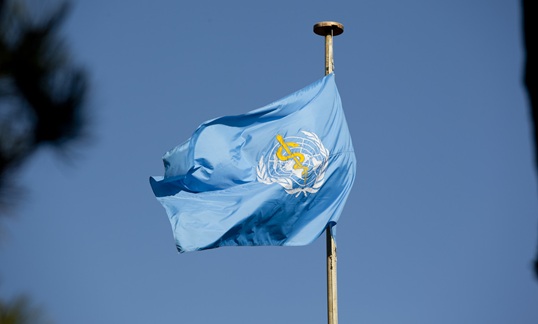Jews from both East and West are coming to Israel in growing numbers, increasing the possibility of a new wave of Aliyah.
More and more immigrants are coming from Western countries, especially France · With the deepening economic crisis driving Jews from the West, recent events in Russia and Ukraine may also lead to a wave from the East · Veteran demographer Yaakov Feitelson on recent trends in the Jewish world

Is Israel about to experience a new wave of Aliyah? An examination of the various factors affecting Jewish communities around the world leads to just such a conclusion. On the one hand, there are the deepening economic crisis and rising anti-Semitism. On the other hand, Israel is enjoying great strides in economic growth and prosperity, as well as providing a sense of personal security increasingly lacking in Europe. These factors combined are leading many to choose Israel as their new home.
Let’s crunch some numbers:
According to the Israeli Bureau of Statistics and the Ministry of Immigration and Absorption, since the outbreak of the Great Recession in 2008 and the end of 2013, 108,457 Olim came to Israel. The peak came in 2013, with 19,558 new immigrants. Some 60 percent came from countries with a lower standard of living than Israel – 40 percent from Eastern Europe, 11 percent from African countries and 9 percent from countries in Asia. This as opposed to 40 percent from North American and Western Europe.
But this trend of primarily economically related immigration may be changing. Last year saw a substantial increase in Jews coming from more affluent countries, which bespeaks non-economic motives: the number of Olim from these countries in 2013 was 57 percent higher than in 2008, placing Western Europe as the second source of Aliyah after Eastern Europe.
A comparison between 2013 and 2012 raises some interesting points. The number of Olim from countries considered “good” for the Jews increased substantially: immigration from Western Europe in 2013 increased 39.3 percent compared to 2012, Central and South America saw a 23 percent increase from 2012 to 2013, and South Africa saw an increase of 10 percent. The United States stayed the same, with an increase of only 2.4 percent from Eastern Europe.
The French (Aliyah) Revolution
A country-by-country breakdown is even more instructive: while Aliyah from Russia is higher than any other country, maintaining a 14 percent increase in 2013, immigration from Ukraine has stabilized and even shown a 6.7 percent decrease from last year. Immigration from Hungary also increased by 22 percent.
But the most impressive growth is from France: 3,263 Jews came in 2013 – 74.8 percent more than in 2008 and 69.7 percent more than 2012. This rapid increase continued in January and February 2014: no less than 697 Jews immigrated to Israel, 140.3 percent higher than the equivalent period in 2013 and 294.3 percent higher than the same period in 2012. Thus in two short years, France has gone from fourth place to second in countries of origin for Aliyah, by passing the United States and Ukraine.
Other states in Western Europe and the Western Hemisphere are also showing signs of increased Aliyah: Aliyah from Belgium increased 110 percent relative to 2008 and 68.5 percent relative to 2012. Aliyah from Switzerland increased 65.1 percent relative to 2008 and 42.5 percent relative to 2012. South America saw a 22 percent increase in Aliyah relative to 2012, with the highest increase coming from Peru – 183.3 percent (!). Columbia saw an increase of 42 percent, Venezuela – 24.5 percent, Argentina – 23.6 percent and Brazil – 9.4 percent.
The global economic crisis is thus affecting Jews around the world and increasing the drive to immigrate to Israel. While the numbers are not high in absolute terms, the substantial relative increase gives us some clues as to what’s happening beneath the surface among Jewish communities. The economic and personal security Jews in the West used to enjoy isn’t what it used to be, and more and more Jews are deciding that Israel is a better bet on both counts.
A Russian-Ukranian Wave?
There is no doubt that the most important events are occurring now in Ukraine. The last several months have seen a serious deterioration in the political stability of the country [including the annexation of Crimea and separatist attempts to break away in East Ukraine – A.W.]. Whatever the results of these events, they are sure to bring with them severe damage to Ukraine’s economy, and with it mass unemployment and the collapse of state and municipal social services. Indeed, the situation is reminiscent of the rapid collapse of the USSR in the late 1980s and early 1990s.
These trends will likely lead to an increase in Aliyah to Israel in the coming years. In addition to the deterioration in Ukraine, Russia is slowly returning to the old ways of repression, eerily reminiscent of the days of the Czar and the Soviet Union. The Russian economy is not in good shape, a fact often mentioned by local economists and senior state officials. Only four of the 83 administrative regions of the Russian Federation has a budget surplus. The other regions had a budget deficit that reached no less than 600 billion Rubles, even with the stimulus package from the Russian central government.
International investment in Russia have also substantially decreased, and in some places such as the Russian far east, as much as 50 percent. Capital is fleeing as well: according to former Russian Treasury Minister, Kudrin, money transfers from Russia to other countries reached 150 billion dollars, as opposed to just 62 billion in 2013. The deterioration in Russia’s financial standing comes alongside a similar drop in its internal and international political position, and things may get worse in the future. We may then see an increase in immigration from Eastern Europe similar to what we are seeing from France.
Rising to the Challenge
Israel needs to rethink its immigration strategy in this new world order to attract as many Jews as possible before things get worse. Such a policy requires concentrating data on economic fields in which Israel needs skilled workers as well as the economic opportunities Israel can provide to workers in these fields. Such a database could then serve as a launching point for campaigns to attract such Jews to Israel.
All this, alongside strengthening entrepreneurship and economic freedom in Israel, could turn it into the “Land of Opportunity” for Jews who are losing opportunities elsewhere. This will attract a new wave of Aliyah, infusing the country’s economy with much-needed capital and energy. The successful integration of these new arrivals would not only contribute to their economic and personal safety, but also to their contribution to science, art and culture in their new home.
Yaakov Feitelson is the author of “Demographic Trends in the Land of Israel (1800-2007)”, Institute of Zionist Studies 2008. This article is based on a version of the article updated for 2013.
English translation by Avi Woolf.
To receive updates on new articles in English, join Mida on Facebook or Twitter or join our mailing list.







I think a lot of your readers would be interested in the complete data? Can the author provide a link to it?
I think Putin is trying to revert this Aliyah trend from Eastern Europe to
Israel. Especially by attracting the Observant Jews including Orthodox, Hasidic
and Haredis that are rejecting the secular State of Israel to Ukraine like Czar
Nicolas II did by sending the Jews to Odessa/ Ukraine in the 1880's to
rebuild it and improve commerce with Poland and the Western World
As the Jerusalem Post says in article recently written by Isi Leibler.▼
"…Thirty years ago, I would never have visualized myself supporting
closer relationsbetween Israel and Russia.
http://www.jpost.com/Opinion/Columnists/Candidly-speaking-Putin-Ukraine-and-the-Jews-345546
Vladimir Putin. [File] Photo: REUTERS
The international crisis created by Putin’s military incursion into
Crimea has also served to highlight, again, Russia’s relationship to
the Jews. The Russian president has included radical nationalism and
anti-Semitism in the Ukraine as major justifications for his
intervention.
.http://www.jpost.com/Opinion/Columnists/Candidly-speaking-Putin-Ukraine-and-the-Jews-345546